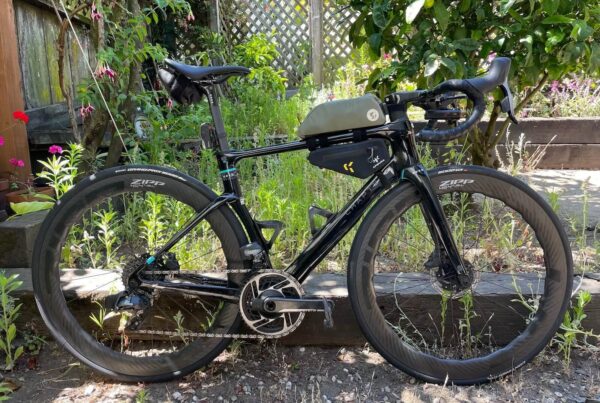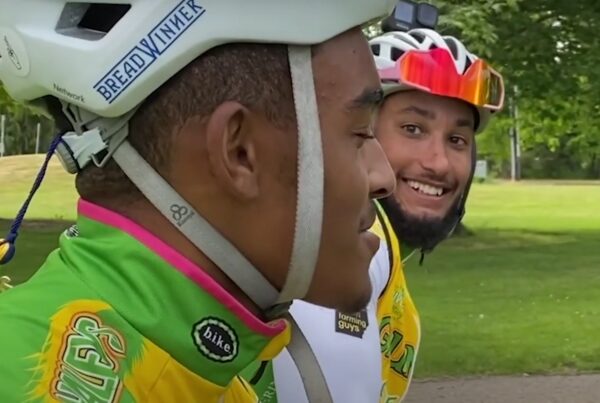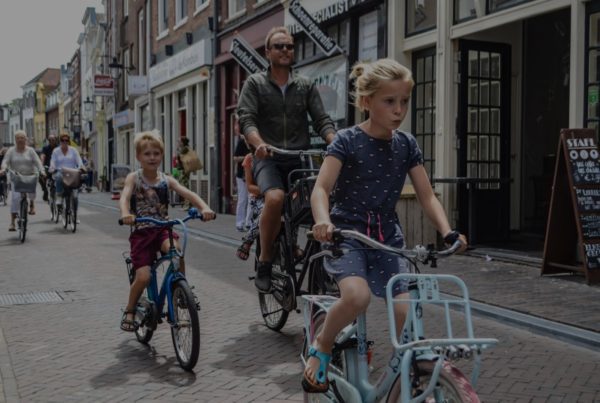This article featuring Bob Mionske has been reproduced here for our media archives.
Monday, February 20, 2012
by Edmond Hood
The Olympic road race, Seoul – the year is 1988 and it’s the first big East/West Olympic showdown since the Montreal Games 12 years before. East German Olaf Ludwig restored Eastern honour in Seoul, with West Germans Bernd Grone and Christian Henn taking the other two medals; legendary Soviet sprinter Djamolidine Abdoujaparov took fifth. But in fourth place was an ex-skier who’d only been riding a bike for four years, who says he couldn’t ride GC, couldn’t time trial and in his own words, was ‘built like a wrestler’ – Bob Mionske.
Moscow in 1980 saw the US boycott the Olympics as a result of the Soviet invasion of Afghanistan. And for Los Angeles in ‘84 the Eastern bloc had to boycott – naturally. Soviet legend Sergei Soukhoroutchenkov won in Moscow, but that was no surprise; Soukho had won the Russian road race championship held on the same course some weeks earlier – but over one lap more than the Olympic race. That enigmatic man Alexei Grewal won in LA for the USA to even the score.
Mionske was a contemporary and rival of riders like Lance Armstrong, Bobby Julich, Chann McRae, George Hincapie and Tyler Hamilton; they went on to careers in the highest echelons of European road sport whilst Mionske became the USA’s first ‘cycling attorney’ – as he puts it; ‘I had only cyclists, other attorneys represented cyclists in their practice but none, to my knowledge had only rider clients.’
He recently took time to talk to PEZ about his life and times.
PEZ: You were a skier, Bob?
Bob Mionske: Yes, I was a ski racer but I came to it late, at 12 years-old – all the best skiers start when they’re much younger than that.
My dream was to make the US ski team – but that wasn’t going to happen.
I took up cycling as a form of cross training to improve my cardio, strength and balance.
But in sports which rely so much on balance, strength and fitness aren’t the be all and end all; on the bike, generally the more you train and the stronger you are, the better you get -but skiing isn’t like that.
Eventually I tried a few bike races and thought; ’I could maybe be good at this’ and I started properly in 1984/85.
PEZ: By 1986 you’d made 12th in the amateur Tour of Belgium?
BM: That was with the US national team, we were riding against the likes of Johan Bruyneel and Johan Museeuw.
Of course we didn’t know who they were – but I was getting into breaks with those guys.
I was also 6th and best foreigner in the amateur Tour of Sicily, that year.
PEZ: In ’86 you were with ‘Wood Spoke’- was that a shop team?
BM: Yes, a bike shop team out of Wisconsin.
That was the way it was back then; a transition phase.
Lemond was on the way up and getting himself into the public consciousness but cycling was still a small sport.
PEZ: For the ’88 Olympics you were with Sunkyong?
BM: That’s an interesting one; the Belgian guy that set it up was also the guy who helped set up 7-11 with Jim Ochowicz.
But they soon got him out of that equation – the guy’s wife was Korean and she had contacts with the Sunkyong Corporation which was a huge organisation in Korea.
He was able to sell the idea to them on the basis that the Olympics were in Korea for 1988.
PEZ: Tell us about Seoul.
BM: It was a good US team, there was Scott McKinley who 7-11 were grooming for stardom as a pro sprinter and Craig Schommer who was second in the world junior kilometre and team pursuit championships – plus me.
We were all good sprinters and could all handle ourselves in a break.
The Olympic road race is always a bit of a lottery but I saved myself and then later in the day I saw a guy go, no one reacted and I went up to him.
We ended up with a break of 10 or 11 riders.
Usually in a situation like that they’ll begin to mess around, but somehow the hammer stayed down and we were 30/40 seconds clear coming in to the last five or six miles.
That’s where I made a mistake, I guess I was excited with the circumstance and I did too long a pull through this chicane and on to a false flat.
As I came off the front, Ludwig went and I couldn’t react – Grone got across to him and we were sprinting for third spot.
Henn wasn’t a great sprinter but it was a slight downhill and I couldn’t get round him – although I held off Abdoujaparov for fourth.
The result was a mixed blessing – but it was a good placing for a guy who started late, couldn’t climb or time trial and at 5’ 8” weighed 175 lb!
PEZ: You won the US amateur road race championship in 1990 for ‘Yellow Jersey.’
BM: That’s a bike shop in Madison Wisconsin owned by a friend of mine, Andy Muzi who deserves a mention from me for the help he gave me– I was the only rider, which made it tough racing against organised teams.
The US champs was a big deal back then – I was at my best after a long hard race like that, if it was a short race than I wasn’t one of the quickest, but at the death of a long, hard race I was still as fast.
PEZ: The Barcelona Olympics in ’92, tell us about them.
BM: It was bad days all round – Lance had been killing everyone since January and was at the end of his rope.
I got food poisoning and spent the day before the race in the toilet – I said to our manager, Chris Carmichael, that if he wanted to give George Hincapie my ride then I was fine with that.
But I rode and my job was to get in the break; which I did with the late Fabio Casartelli – who went on to win – Erik Dekker who was second and that Latvian guy Dainis Ozols who took the bronze.
But when the attacks started coming out of the break, I had nothing left, the sickness had caught up with me.
Lance tried to get across but didn’t make it, he finished 14th.
PEZ: You won eight races for Saturn in ’92 but that was your last season, why?
BM: Yeah, but I’d had 22 the year before – and remember that it’s not like they’re big European wins.
You fly into Des Moines, Iowa ride a crit, win the sprint and then fly out.
And by then I was 30 and never going to go to Europe to make it; my build was wrong, I was more like a wrestler – I could bench press 300 lbs when I first started cycling.
My sprinting was a strength exercise, big gear, out of the saddle, stomping on the pedals – like a weight lifter.
I was also a bit of a ‘flash in the pan’ with my form, it took me until June to get going properly – I could never go well in the early season.
PEZ: Being a ‘Euro dog’ was never an option, then?
BM: In those days, American riders were pretty intimidated by the European scene – you saw guys go to Italy and come back fried.
It was different if you were on 7-11 because you had another five or six US guys around you and a team structure to support you.
Besides, by the time I rode pro you could make pretty strong money in the USA – one year I made $100,000.
By that time there were six or seven teams and if you could ride GC or sprint then you could be approached by another team who’d make you a better offer.
And you’d get Euro guys coming over; Roberto Gaggioli was one, he cleaned up and made a lot of money – much more than he would have on a small Italian team.
PEZ: You became Saturn DS for ’93.
BM: Yeah, but I didn’t really enjoy it – in those days it meant driving back and forward across the USA 10 times each year.
I liked the part of being in the team car on a race, but there were no laptops, no mobile phones and keeping on top of 30 riders and staff was a nightmare.
You were really just a baby sitter with no glory and less money than when you were a rider.
PEZ: You were a rider who employed psychology against your opponents.
BM: Sure!
If you’re the strongest rider in a race then you can’t wait to get to the part of the course that’s going to suit you; so you can use your strength – but the strongest rider doesn’t always win.
For me the really interesting part of racing is watching the break whittle down from 12 to 10 to six then finally, three or four.
It’s like being in a street brawl, running for your life – your survival instincts come in to play and you maybe have to cut deals.
I used to believe that every decision you made in a race had a psychological impact – not just in your own mind, you had to try and influence the opposition.
Maybe you’d let yourself slide a little of the back on a climb and the others would think; ‘he’s done’ – but the next time they’d see you would be when you passed them in the sprint.
What you’re thinking in a race has a great impact on how you’ll perform – it’s not just Vo2-max and power to weight ratio that counts.
Team Sky has tapped right in to that aspect and has psychologists on their staff.
Here in Portland, Oregon there must be 15-20 cycling coaches, but I didn’t want to get into that; ‘do 40 miles on Tuesday and have an easy day, next day’ thing.
I was much more interested in the sensations you experience in a race and what your goals are.
When I first got in to law I used to represent riders – Michael Barry, Tom Danielson and David Zabriskie were three of them – and I used to try to put across my ideas on the mental aspect but it was difficult to get guys to tap fully into what I was saying without me being in Europe with them.
PEZ: Where did the idea come from to be a ‘cycling attorney?’
BM: There are a lot of opportunities for you when you practice law – crime, the banking world, real estate, sport . . .
I represented those riders I mentioned earlier and also guys like Kevin Livingston.
One day I was approached to be an expert witness in a case where someone had been out on their bike and was hit by a car – that’s when a light came on in my head.
I wrote a book in 2007 about the law (Bicycling & The Law: Your Rights as a Cyclist) as it affects cyclists and what your civil rights are.
The subject interested me a lot – that was the first time someone had written a book about bicycling and the law since the late 1800’s.
PEZ: And you get enough business to keep you going?
BM: I write a column for ‘Bicycling’ magazine and I was the first ‘bicycle law attorney’ – when I moved to Oregon in 2001 there was only one attorney doing bike law – we got to be good friends – but there are six now in Portland alone.
If you check on the internet you’ll see that there are maybe 20 teams in the US which are sponsored by lawyers.
So there’s a lot of business but a lot of competition, too.
PEZ: Do you still follow the sport?
BM: Every day; and I’m a PEZ reader.
There were a few years when I was at law school when I didn’t follow it so closely but now I’m a fan, again.
I’m not a ‘super fan’ like you’d see around the Postal or Discovery bus – I don’t need to know what Lance had for breakfast!
PEZ: Lance – did you ever think he’d do what he did?
BM: I had weird inklings; I remember one time at the Gas Town criterium the whole 7-11 team trying to chase him down; but they couldn’t – and he was only 20 years-old.
I can also remember being unable to sit on his wheel.
He was always strong, but at that time he weighed 175 lbs and I certainly never foresaw the whole Tour winning/Hollywood thing.
PEZ: If you could do it over?
BM: I wish I’d worked on adapting my body, had a coach, lost weight, learned to climb and pedal faster, focussed more on nutrition and worked on my attitude.
I look at the opportunities for US sprinters now with teams like Garmin – I realise that you have to make big sacrifices and I don’t know if I’d be a star, winning all the time; but I’d certainly like to think that I could come up with the odd amazing result!
***
With thanks to Bob for taking the time to share his memories with us – and if you need an attorney . . . .



